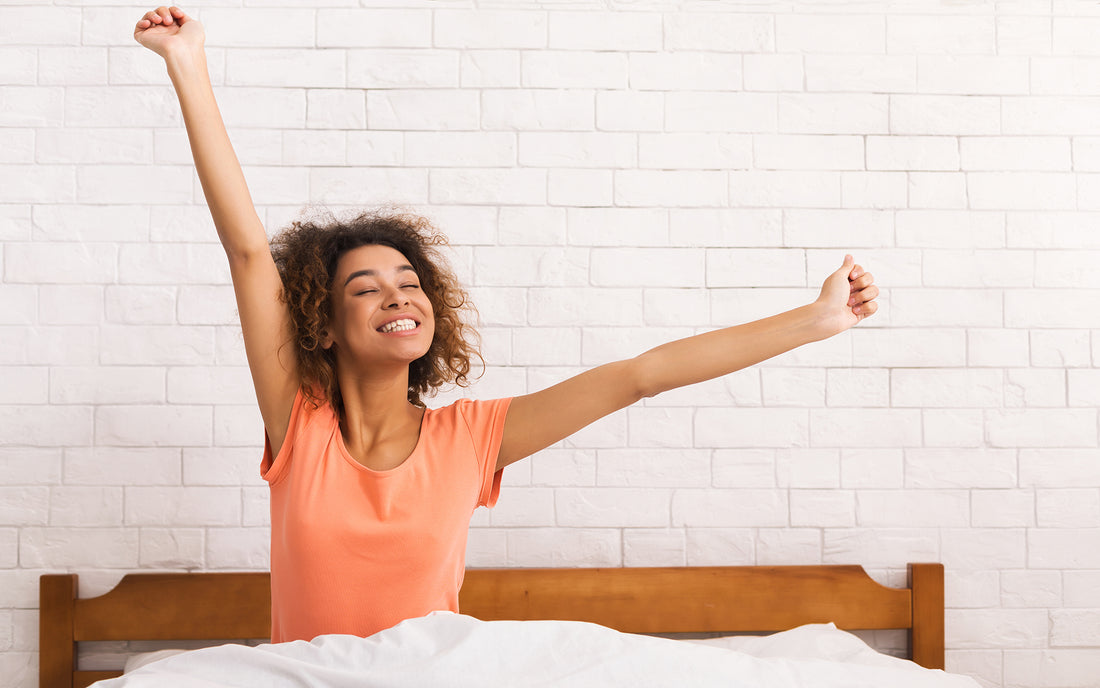Posted by pharmacy project
on April 10, 2024
better_sleep._sleepmatecpap.jpg


Sleep Apnea and Sweet Dreams: A Guide to CPAP Therapy Success
For millions of Australians, sleep apnea disrupts a good night's rest. The constant struggle to breathe can leave you feeling exhausted and unfulfilled. While CPAP therapy is a highly effective treatment, adjusting to the machine and mask can take time. But worry not! Here's a guide to CPAP therapy success is packed with tips to help you get the best night's sleep with your CPAP machine:
Optimising Your CPAP Experience:
- Finding the Right Fit: A properly fitted mask is crucial for CPAP Therapy Success. A mask that leaks will disrupt your sleep and reduce the effectiveness of the treatment. Work with a sleep technician to ensure a comfortable and secure fit [1].
- Mask Selection: Explore different mask options. There are nasal, full-face, and hybrid masks available. Find one that suits your sleeping style and minimises discomfort [2]. There are a wide range of sleep apnea masks available on our site. Ensure you are considering facts such as do you breath mostly through your mouth/nose, if you have a beard and your sleeping position for which you should consider other accessories such as sleep apnea pillows.
- Climate Control: Dry or cold air from the CPAP machine can irritate your nose and throat. Consider a humidifier attachment to add moisture to the air and ease any dryness [1]. Humidifiers are available as addition parts to your current sleep apnea machines and are vital for a comfortable experience and are crucial for CPAP therapy success.
Creating a CPAP-Friendly Sleep Routine:
- Practice Makes Perfect: Don't expect to love your CPAP machine on night one. Wear it for short periods while watching TV or reading to get comfortable [1].
- Maintain a Sleep Schedule: Go to bed and wake up at consistent times, even on weekends. This helps regulate your body's natural sleep-wake cycle and makes using your CPAP machine a seamless habit [3].
- Positive Reinforcement: Reward yourself for sticking to your CPAP routine. This positive association can increase your motivation to use the machine every night [4].
Lifestyle Adjustments for Better Sleep with CPAP:
- Healthy Habits: Maintain a healthy weight, exercise regularly, and avoid smoking. These lifestyle practices can improve your overall sleep quality and potentially reduce the severity of your sleep apnea. Both aerobic exercise like cardio and running, as well as resistance exercise like weightlifting, can improve sleep quality[5]. One study found that a 12-week regimen of aerobic and resistance training led to a reduction in the severity of OSA [last one]]]]]]
- Limit Alcohol and Caffeine: Alcohol can relax your throat muscles, worsening sleep apnea. Similarly, caffeine can interfere with sleep, especially in the hours leading up to bedtime [6,7]. It is vital to reduce your alcohol intake when diagnosed with sleep apnea, specially when using sleep apnea treatments to ensure optimal results.Alcohol can increase your risk of sleep apnea episodes by 25% and can worsen other sleep conditions, while reducing REM sleep and reduce deep sleep [7]. While caffeine consumption, even 6 hours prior to sleep has been shown to have direct correlations with sleep disturbances [6] and reduce CPAP therapy success.
- Relax Before Bed: Wind down before sleep with calming activities like meditation or reading. Avoid screen time for at least an hour before bed, as the blue light emitted from electronic devices can disrupt sleep patterns [8].
Remember:
- Don't Be Afraid to Ask Questions: If you're experiencing difficulties with your CPAP machine, talk to our fully qualified pharmacists here. They can address any concerns and provide additional support to optimise your treatment for CPAP therapy success.
By following these tips and working with your healthcare team, you can turn your CPAP therapy into a tool for achieving restful sleep and a healthier you.
Sweet dreams!
References:
- [1] ResMed. How to get used to a CPAP machine (7 helpful tips)
[https://www.resmed.com.au/blog/how-to-get-used-to-a-cpap-machine] - [2] Sleep Foundation. Best CPAP Masks of 2024 [https://www.sleepfoundation.org/best-cpap-mask]
- [3] Washington University in St.Louis. Creating a Sleep Routine – 6 Steps to Better Sleep [https://hr.wustl.edu/creating-a-sleep-routine-6-steps-to-better-sleep/]
- [4] Psychology Today. Harnessing the Power of Positive Reinforcement
[https://www.psychologytoday.com/au/blog/nurturing-self-esteem-in-autistic-children/202305/harnessing-the-power-of-positive] - [5] Mayo Clinic. The Connection Between Diet, Exercise, and Sleep [https://www.sleepfoundation.org/physical-health/diet-exercise-sleep]
- [6] Journal of Clinical Sleep Medicine. Caffeine Effects on Sleep Taken 0, 3, or 6 Hours before Going to Bed [https://jcsm.aasm.org/doi/10.5664/jcsm.3170]
- [7] Rise Science. Does Alcohol Help You Sleep? No, Sleep Expert Explains Why. [https://www.risescience.com/blog/does-alcohol-make-you-sleep]
- [8] Cleveland clinic. Insomnia [https://my.clevelandclinic.org/health/diseases/12119-insomnia]
- [9]American Journal of Lifestyle Medicine. The bidirectional relationship between exercise and sleep: Implications for exercise adherence and sleep improvement. [https://pubmed.ncbi.nlm.nih.gov/25729341/]

